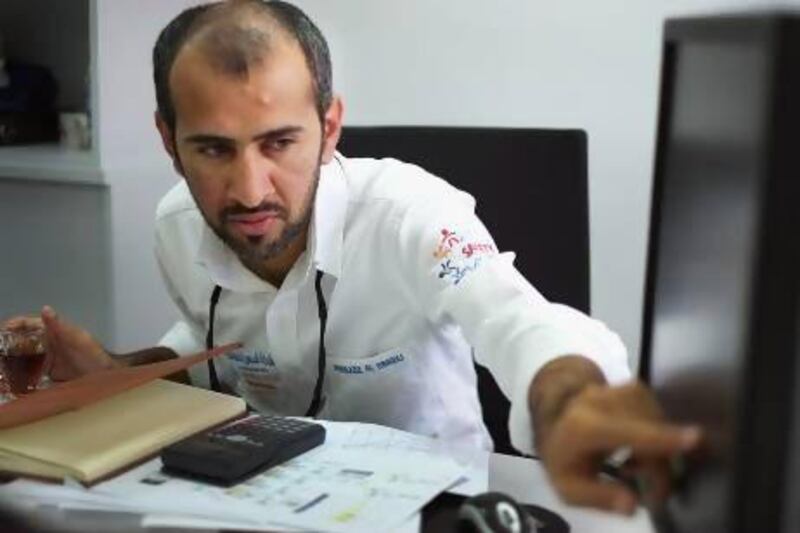ABU DHABI //The UAE seems the perfect place for solar energy, with lots of space and lots of sun - but there are obstacles.
The country is dusty, and this has a habit of getting blown on to the many solar panels and mirrors that are integral to solar-power generation.
There are also more mundane problems. Sometimes the sun is covered by cloud, and solar power is rarely productive at night.
But following the launch in March of Shams 1, Abu Dhabi's 100 megawatt, concentrated solar-power plant, situated in the desert near Madinat Zayed, engineers are trying to mitigate these problems in the context of a real - rather than theoretical or small-scale - solar plant.
Abdulaziz Al Obaidli, an Emirati born in Abu Dhabi, is one of them.
Having joined the Shams project more than a year ago, he is embarking on a PhD at the Masdar Institute of Science and Technology.
Just two months in, he has already published a technical paper on the work being done at the plant to improve its operation.
Shams 1 has capacity to power up to 20,000 homes and, since March 17, has been feeding clean energy into the country's national grid.
Mr Al Obaidli hopes to produce a computer model that predicts changes in input levels - the amount of sun hitting the solar panels - allowing the plant to automatically make adjustments to minimise output unpredictability and, ultimately, save money and boost efficiency.
"We need to be able to have a quicker response - to predict when changes will occur, and be ready to act," he said.
"We can still reduce the cost of the electricity we are producing by optimising our plant."
The eyes of the energy industry have been fixed on Shams's progress since its planning stages and the 2.5-square-kilometre plant promises to offer lessons to others embarking on similar projects elsewhere.
"I believe in sharing knowledge always," Mr Al Obaidli said.
With some 80 concentrated solar power (CSP) projects under way around the world and more expected, the impact of his research could be significant.
"This work, if I succeed, will not only be important for Shams," he said. "All CSP plants have the same problem. So the results will be essential."
But he might not get answers soon, and he expects his PhD to take about five years to complete.
Help could be at hand though, as the engineer has been bringing students from the Masdar Institute to Shams to encourage them to take part in further research.
"I give them ideas for projects, which helps them with their studies and, of course, helps us as well," he said.
Mr Al Obaidli trained as an engineer in the UAE and, after a spell working in Germany, returned to further his career in renewables, lured by the goals of Masdar and the Government to diversify the energy mix in the region.
"Part of it is a culture in the UAE. If you are a good student, you go to medicine or engineering," he said.
"But what I like about engineering is that you have input, there are problems, and then there is output.
"This is what life is. It has affected my way of thinking. I treat everyday life like I treat engineering. I think this is a good way to be."






